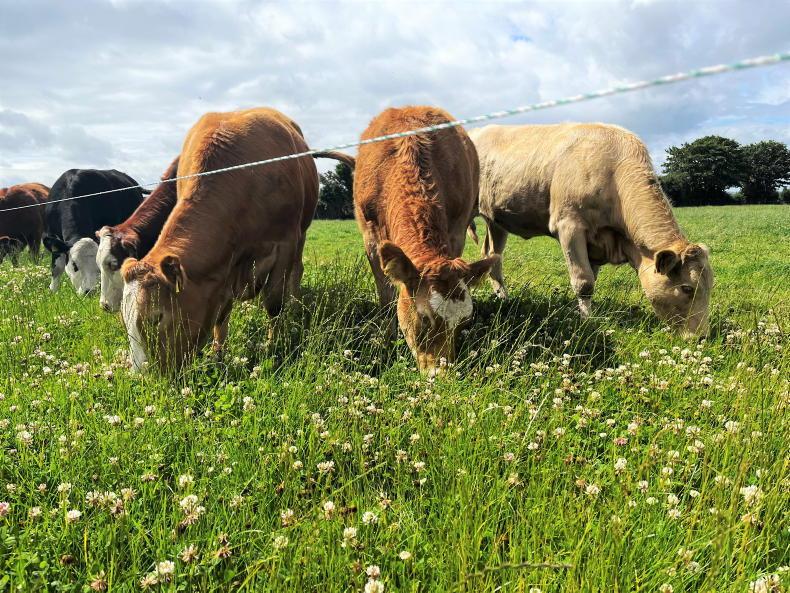A roll-out of carbon audits on NI farms is due to begin in the new year, with the process initially added on to a farm quality assurance scheme (FQAS) inspection.
None of this is easy, with the audit potentially taking at least 90 minutes to complete. Given many farmers already find FQAS inspections to be stressful events, there is a legitimate view that the audit should be done separately, by a different organisation, on a different day.
Ultimately, that would add costs and to be fair to the Livestock and Meat Commission (LMC), which owns and manages FQAS, it has put in a lot of effort to try to make the carbon audit as straightforward as possible.
It is also important to note that carbon auditing is not something the LMC decided to impose on farmers.
The origin of this goes back to the NI Climate Change Act devised by Stormont politicians, which came into law in 2022.
It clearly sets out how each sector of the economy must have a plan to help NI achieve net zero greenhouse gas emissions by 2050 – for agriculture this process includes carbon audits of farms.
With the legislation in place, an agri-food industry-led carbon-steering group has been working on the roll-out of audits and it is this group that decided it should be subsumed into a FQAS inspection.
Since then we have also had DAERA confirming that all farmers will have to do a carbon audit if they want to get future farm support payments, while a number of dairy co-ops have now made it a compulsory part of new sustainability payments.
The aim in all of this is to collect baseline information which will highlight key areas where improvements can be made.
As the science evolves, it will also be vital to include data on the likes of carbon sequestered in soils, hedges and trees.
The alternative to being proactive is pretty stark. Hanging over our industry is that advice from experts in the UK Climate Change Committee, who recommended that the NI path to net zero by 2050 requires a 22% cut in dairy cattle, a 17% reduction in beef and an 18% cut in sheep numbers by 2030.
Read more
Carbon audit linked to new payments
Change or face a bleak future, NI farmers told
A roll-out of carbon audits on NI farms is due to begin in the new year, with the process initially added on to a farm quality assurance scheme (FQAS) inspection.
None of this is easy, with the audit potentially taking at least 90 minutes to complete. Given many farmers already find FQAS inspections to be stressful events, there is a legitimate view that the audit should be done separately, by a different organisation, on a different day.
Ultimately, that would add costs and to be fair to the Livestock and Meat Commission (LMC), which owns and manages FQAS, it has put in a lot of effort to try to make the carbon audit as straightforward as possible.
It is also important to note that carbon auditing is not something the LMC decided to impose on farmers.
The origin of this goes back to the NI Climate Change Act devised by Stormont politicians, which came into law in 2022.
It clearly sets out how each sector of the economy must have a plan to help NI achieve net zero greenhouse gas emissions by 2050 – for agriculture this process includes carbon audits of farms.
With the legislation in place, an agri-food industry-led carbon-steering group has been working on the roll-out of audits and it is this group that decided it should be subsumed into a FQAS inspection.
Since then we have also had DAERA confirming that all farmers will have to do a carbon audit if they want to get future farm support payments, while a number of dairy co-ops have now made it a compulsory part of new sustainability payments.
The aim in all of this is to collect baseline information which will highlight key areas where improvements can be made.
As the science evolves, it will also be vital to include data on the likes of carbon sequestered in soils, hedges and trees.
The alternative to being proactive is pretty stark. Hanging over our industry is that advice from experts in the UK Climate Change Committee, who recommended that the NI path to net zero by 2050 requires a 22% cut in dairy cattle, a 17% reduction in beef and an 18% cut in sheep numbers by 2030.
Read more
Carbon audit linked to new payments
Change or face a bleak future, NI farmers told






 This is a subscriber-only article
This is a subscriber-only article











SHARING OPTIONS: